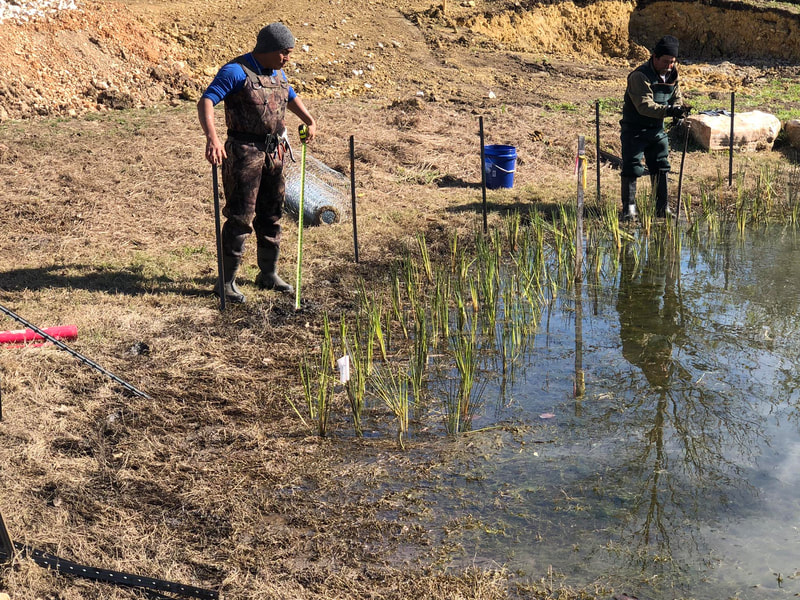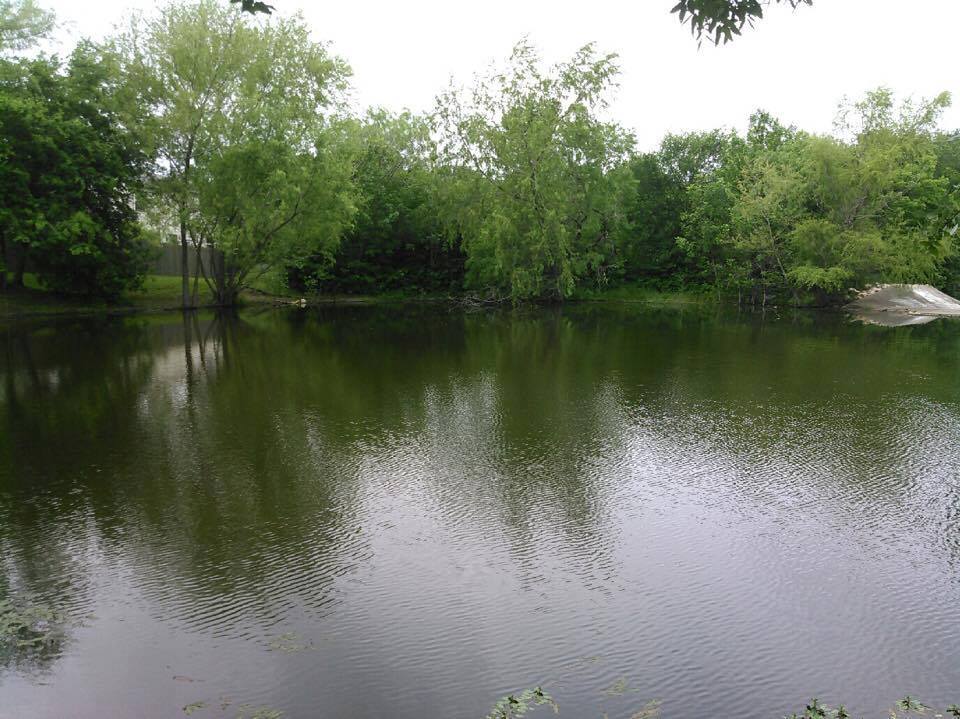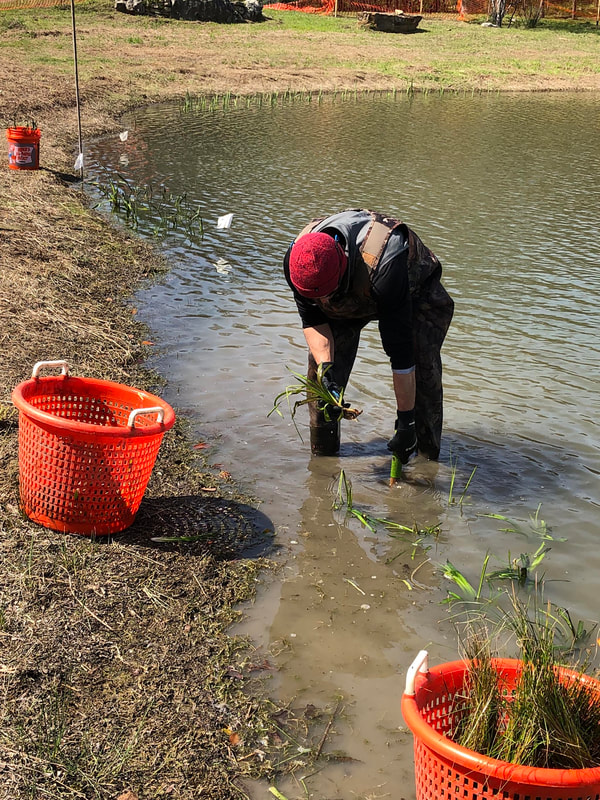Aquatic Plants and Algae Control
|
Call Us @ 512-386-5900
|
|
Is your pond out of balance?
Let Aquatic Features take care of finding and managing your ponds nutrient balance so that water quality plants and algae are no longer a problem. We take an integrated approach that includes: aeration, water circulation, beneficial microbes and chemical amendments. All of the methods that we use have been thoroughly researched and approved by EPA and our staff is licensed, highly trained and insured to use the best product for your ponds imbalance. Aquatic weeds and algae are a naturally occurring part of a pond ecosystem. The amount of growth is a function of water depth, water clarity, and nutrient levels. Fortunately, there are a variety of management tools that can be used to control unwanted growth. The question that needs to be answered is what level of control is necessary given the purpose of the pond and the expectations of the stake holders. Aquatic weeds and algae can be a major problem in urban water quality ponds. Problems associated with weeds and algae include: causation of stagnant water that is suitable for mosquito breeding, clogging of drain pipes and overflows, interfering with fountain intake screens, and algae and over-grown plants can make for an unsightly view for the neighborhood. Some stake holders believe that all aquatic plants and algae must be eliminated, however aquatic plants are beneficial in preventing erosion and they filter excess nutrients from storm water runoff. Aquatic plantings are required by law by TCEQ and City governments for water quality ponds in certain cities. The problem with this buildup is, often this relates to nuisance and noxious types of algae. They love phosphorus and they need a lot of phosphorus to grow. Specifically, you will see abundance of algae that forms mats. Thick mat formers like pithophora and cladophora also love and use a lot of phosphorus to grow. So, the more phosphorus you have, the more you are likely to have a problem with algae in your system. Algae like green algae may be good for a system, though. They may move up the food chain and may grow those big bass you're looking for. Those algae don't need as much phosphorus. They prefer higher N to P ratios. So by removing the phosphorus, we shift that ratio higher, and can grow those better types of algae. Algae Treatment Methods Include:
|
|
Summary
In summary, Algae can be good or bad for a pond ecosystem. However, the more Phosphorus you have in your pond, the more likely the pond will be growing less desirable algae that may produce toxins or foul odors.
In summary, Algae can be good or bad for a pond ecosystem. However, the more Phosphorus you have in your pond, the more likely the pond will be growing less desirable algae that may produce toxins or foul odors.

















